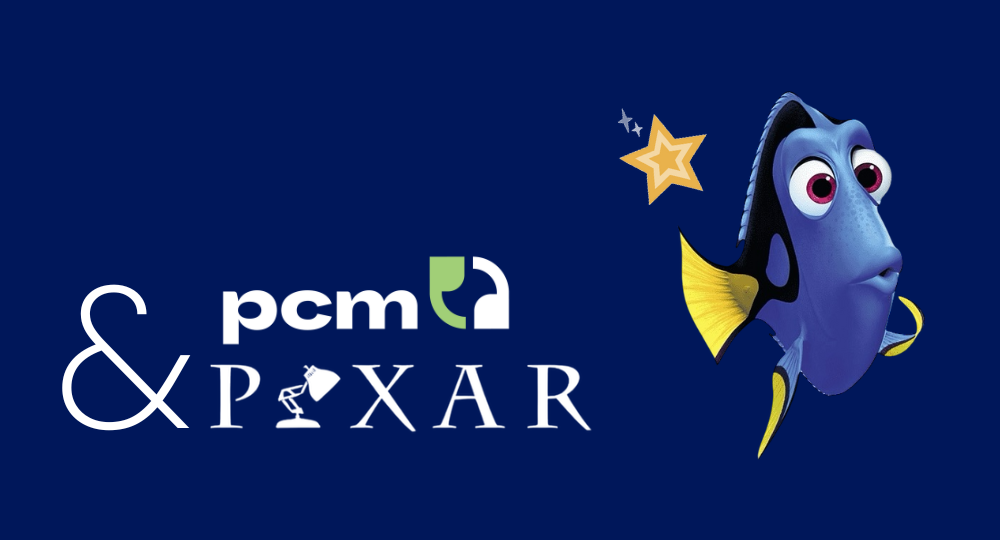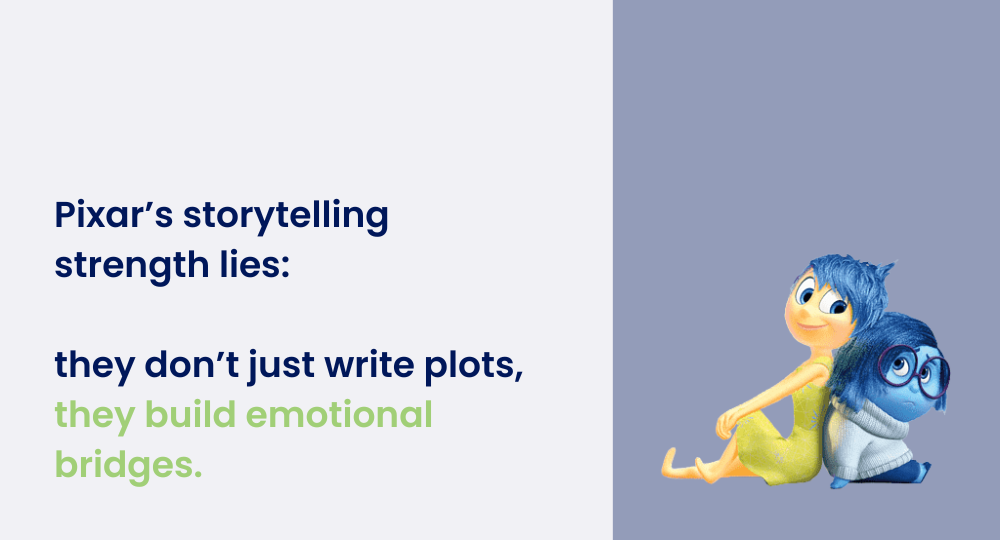When you think of Pixar, you probably think of unforgettable films: Toy Story, Finding Nemo, Up, or Inside Out. These aren’t just entertaining stories: they’re emotional experiences that resonate deeply with audiences of all ages.
The secret is in the way Pixar storytelling and Process Communication Model (PCM) come together, using personality types to create characters that feel authentic and relatable.

The Framework Behind the Magic
At its core, PCM is built on the idea that every person is a unique mix of six Personality Types. One type tends to dominate, shaping how we see the world, connect with others, and respond to stress. The six Personality Types are:
Thinker — logical, organized, structured
Persister — dedicated, value-driven, observant
Rebel — spontaneous, playful, creative
Imaginer — reflective, calm, independent
Promoter — bold, persuasive, pragmatic
Harmonizer — warm, empathetic, people-focused
We all carry these six energies within us in different proportions. This explains why people don’t react to the same message in the same way — and why communication, whether in films or in the workplace, needs to be adapted, not standardized.
Pixar Writers Use PCM, And It Shows
Few people know that Pixar screenwriters have been trained with PCM. Once you do, it’s impossible not to notice: each character is carefully crafted to represent different PCM Personality Types, which guarantees that someone in the audience feels seen, understood, and connected.
Take Finding Nemo: Dory, with her quirky humor and impulsive charm, radiates a strong Rebel energy: light, funny, spontaneous. Yet, even in her scattered and whimsical way, she surprises us with flashes of logic that reflect the Thinker energy. Since so many people easily access their Rebel floor, Dory instantly connects with a large portion of viewers.
This isn’t random creativity. It’s strategy. Pixar doesn’t just tell stories. They use a communication model that ensures emotional bridges are built with all kinds of audiences.
Why This Strategy Works Everywhere
Most storytellers, leaders, or even coaches unconsciously create from their dominant personality type. The result? Their message resonates strongly with people like them, but risks missing everyone else.
Pixar avoids this trap by deliberately designing character diversity across all six Types. The more variety they include, the broader the emotional appeal. That’s why Pixar films don’t just succeed at the box office: they live on through word of mouth and multigenerational love.
For coaches, HR professionals, or content creators, the lesson is clear: stretch your voice to reach all the six energies and grow your audience.
Why PCM Outshines Other Tools
Many communication or personality models simplify people into rigid boxes, giving you a quick snapshot but little depth. PCM takes a different route:
It’s dynamic, showing how people shift under stress.
It’s practical, giving you tools you can apply instantly in conversations.
It’s universal, bridging contexts from Hollywood scripts to workplace leadership.
If you want a tool that reflects the full complexity of human connection without losing clarity, PCM is the model that delivers.
From Pixar to Your Practice
You don’t need to be a screenwriter to apply PCM. Whether you’re a coach, trainer, HR professional, or team leader, PCM helps you identify the dominant Personality Types of individuals, adapt your communication to meet different psychological needs, and create messages that land with everyone, not just people like you.
So, the next time you watch a Pixar film, ask yourself: “Which character spoke directly to me, and why?” Chances are, that character reflects your own dominant energy, or the one you aspire to.
Learn more about
Why Motivation Collapses in February A PCM Perspective
Date: February 19, 2026
Blue Monday Chronic Stress PCM: A New Perspective
Date: January 19, 2026
PCM Holiday Stress Strategies for Family Gatherings
Date: November 24, 2025
PCM and Competition: Why This Model Stands Apart
Date: November 4, 2025
A Milestone for PCM Research: How Our Personality Shapes Emotional Responses in Communication
Date: October 20, 2025
PCM and Breast Cancer Awareness: A Story of Renewal
Date: October 9, 2025



